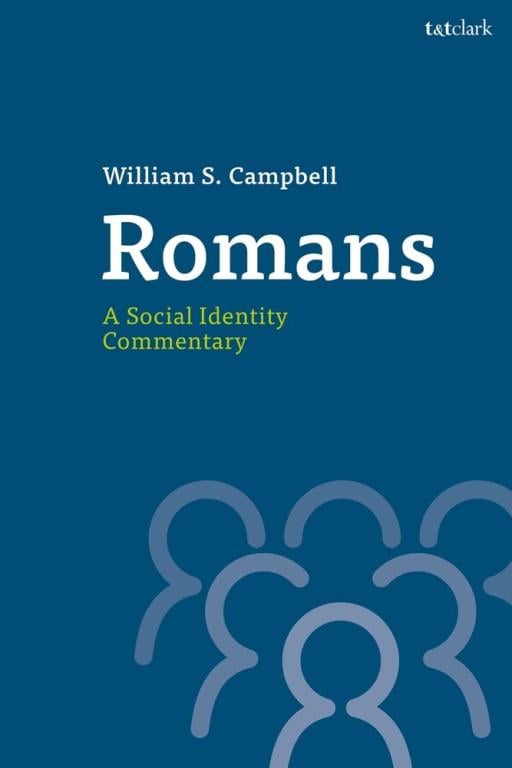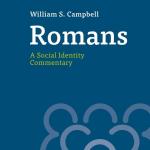In Romans 8.4 and 10.4 the language of fulfillment comes up. Campbell suggests. the verb to fulfill does not mean to observe. He argues since it is passive in Rom. 8 ‘might be fulfilled’ that it refers to the indwelling work of the Spirit, not to human effort or accomplishment or observing. But fulfill is also the language originally applied to prophecy— something said in the past is fulfilled at some point thereafter and if it is fulfilled it has accomplished its purpose and is at an end. So what then does Rom. 10.4 mean when it says Christ is the telos of the Law? it could be translated goal/ terminus/ or end. But Paul’s view is that Christ is not merely the goal of the Mosaic law though is true in one sense (namely that all Scripture points to Christ and the promises of God are yea and amen in Christ as 2 Cor. says), but it is also true that has fulfilled it righteous requirements and its demands in regard to dealing with sin etc. Followers of Christ don’t have to keep making literal sacrifices etc. whether Jew or Gentile, and this is why Paul will suggest a different sort of personal sacrifice for one and all in Rom. 12.1-2.
In regard to the issue of ‘being in Christ’ one of the more interesting insight in Campbell’s treatment looks back to what Paul says at the beginning of Rom. 6. When Paul speaks of being buried with Christ in baptism in Rom. 6, it indicates belonging to the same family of the person with whom one is buried. So Gentiles in Christ become part of the family of God through Christ, though Campbell prefers the designation an associate family, a brotherhood with Christ, not part of Israel. Campbell adds that Gentiles become co-heirs with Christ, not with Israel, nor do Gentiles become part of Israel to do so. But this ignores that Israel as well, in order to become co-heirs, have to become followers of Christ now that there is a new covenant, which is why Paul says what he does about the salvation of the rest of Israel when Christ returns in Rom. 11. They do not receive this inheritance just by keeping the Mosaic covenant or because of their ethnicity, though there is nothing wrong with their ethnicity, indeed there is much to be proud of (see Rom. 9.1-4).
One of the more interesting and helpful insight from Campbell’s treatment of Rom. 8 is this— It is possible that Paul is concerned that now that the Gentile Christians have abandoned their former gods, they are worried that they don’t have security or protection from the wrath of such gods, and so Paul is reassuring them that in Christ they are protected even against malevolent angels or principalities…. And also they possibly are being harassed or persecuted by Gentile relatives and neighbors who noted this change. But I would note that Paul already sees Gentile Christians as part of God’s elect or chosen ones, not a separate group.
When we get to Rom. 9 Campbell seems to think Paul’s distress involves not just the spiritual state of Israel who has rejected their own messiah, but also their political plight being oppressed by Rome (of which Paul gives not a hint in Rom. 9-11, much less in Rom. 13). Notice that Campbell says nothing about the fact that God gave Israel covenants plural, nor one word about the discussion of whether Christ is called God in Rom. 9.5—which B. Metzger and various commentators think likely. No Paul’s anguish is specifically tagged to the rejection of Christ by Jews, but he wants to make clear to the largely Gentile audience that the story is not over yet, and that such people are only temporarily broken off from God’s people. And there is no basis for Gentiles thinking God has replaced Israel with Gentile Christ followers.
What would have been helpful is if Campbell had discussed the difference between election for historical purposes like being a light to the nations, and salvation which is a different matter. For example, Christ is depicted as the Elect One in Ephesians and Hebrews, but Christ has no need of salvation. He did not sin. So election for historical purposes is one thing, salvation another. That Israel is God’s chosen one doesn’t mean automatically that all Israelites are saved. Indeed, what Paul will say in Rom. 11 is it is only when the Redeemer turns away the impiety of Jacob at the return of Christ that all Israel can be saved. And this brings us to the helpful comments of Bill Campbell on ‘Jacob I loved but Esau I hated’ He notes that the Hebrew root sana of the Greek verb miseo is not an exact equivalent to the English word hate. It is better to render I did not prefer or did not choose [for this specific historical purpose]. I totally agree. This is about choosing for some purpose, not about personal hate. And it is interesting as well that the distinction is made between vessels of mercy prepared in advance for good use, and vessels of wrath that have prepared themselves for such an outcome. The difference in the verbs and their form here is crucial.
On p. 261 Bill helpfully adds—– “Nothing could be clearer in reading Paul’s letters than that he has an important place for individual persons within the body of those who are ‘in Christ’ and in the final judgment from which not individual can be omitted. But the individual’s social identity is derived from the collective of which they are a part and has no independent existence in isolation….Romans focuses not on individuals and their final destiny but on God’s purpose for Israel and the nations within history.” This is exactly right, and this is where SIT helps us see that the emphasis is on corporate personality or group identity, not on the future of isolated individuals. Paul for instance doesn’t say ‘every individual Israelite will be saved’. He says all Israel as a collective will be saved, for example, as will the full number of Gentiles.
The overarching theme is that God’s purpose is to have mercy on both the nations and Israel, which means patience with both to the end when Christ returns. The vessels are not thrown away, not even the vessels that have prepared themselves for wrath or the vessels whom God has prepared before hand for glory.
One of the regular themes in the OT prophets as stressed by Koch, is redemption beyond judgment on Israel. Judgment comes on the household of God, but after that there is restoration. Campbell seems to be unaware of this theme in the major and minor OT prophets. I.e. God does not give up on his people even after he judges them or sends them intol exile etc. It is important to pay attention to the pronouns, not only the ‘us’ where Paul identifies himself with his fellow Christ followers, but the ‘them’ which is Israel, by which he means non-Christ following Israel, which is why he distinguishes himself from them.
The discussion of the hardening of some has been difficult. Here Campbell I think is on the right track. He suggests that Paul concludes that the hardening of a large portion of Israel must have some positive purpose, so he concludes that it was done so the Gentiles could be saved through Christ, but God is not finished with Israel yet. So the hardening did not lead to a permanent fall. (the hardening of Pharoah may be a different story, but its purpose was so God could force Pharoah’s hand to let his people go). So God intended Israel’s poor response to Christ initially which opened the door to go ahead and save the nations. It is called a ‘musterion’ or mystery because the normal way of thinking was that Jews, including Diaspora Jews would return to Zion and the Gentiles would come in on their coat-tails. Now Paul says, God has reversed the process of Gentiles being saved in large numbers first and thereafter ‘all Israel will be saved’
The larger plan of God involves saving all Israel but this is not the focus of Paul’s mission, which is to be apostle to the Gentiles. Paul is not opposed to presenting the Gospel to Jews when opportunity arose but that is not the focus of his ministry, rather it is Peter’s. So his work with Gentiles, he hopes will make Israel jealous, and along the way some Jews will also be saved as his letter showed did happen. Indeed, Campbell thinks early on many Jews accepted the Gospel, but how many through Christ one cannot say. So the root of the olive tree and the first fruits mentioned are the remnant, the Jewish Christians, but their holiness implies the holiness of the whole lump or the whole tree. Paul then talks about the temporary breaking off of some Jews who have rejected Christ, the grafting in of the wild olive shoot i.e. Gentiles, then later the regrafting in of the large majority of Israel.
The olive tree metaphor involves some natural branches being broken off (Nanos is wrong that it merely means broken or bent). No the grafting in of wild olive branches is in place of the one’s broken, though God can definitely regraft in the natural ones later, just as he can also cut off the wild olive branches grafted in. Campbell is right that Paul implies the ethnic differences here, by talking about two different species of olive tree, only one of which is normal or natural. Campbell is right that throughout this argument Paul is countering potential Gentile arrogance if they might see themselves as replacing Jews as God’s people, and of course also countering anti-Judaism and anti-Semitism. True enough. But what Campbell totally misses is that the goal here is a single people of God in Christ— Jew and Gentile united in Christ, not two separate groups of saved people. Otherwise the grafting into the single olive tree metaphor doesn’t work at all, especially if, as Campbell admits ‘the remnant’ in this argument appears to Jewish Christians. The final form of God’s people is not a big family with two parallel and quite different groups of people following different commandments and praxis, but rather Jew and Gentile united in Christ, which requires sacrifices by both Jews and Gentiles in order to be a single people of God. Ekklaw can mean to break. It certainly doesn’t merely mean to bend. It can also regularly mean break off…….
The phrase ‘all Israel’ occurs about 150 times in the Ot and always refers to historic ethnic Israel as a whole. Campbell wants to argue that the deliverer that comes forth from Zion is God, not Christ, but this ignores the eschatological context where Paul has already said that the restoration of Israel will be connected with life or resurrection from the dead, the event Paul clearly connects with the 2nd coming in 1 Cor. 15, and while he is right that Paul believes the new covenant has already begun with Christ’s first coming, he is wrong that this is a renewal of the Mosaic covenant. That view is impossible in light of Gal. 4.












